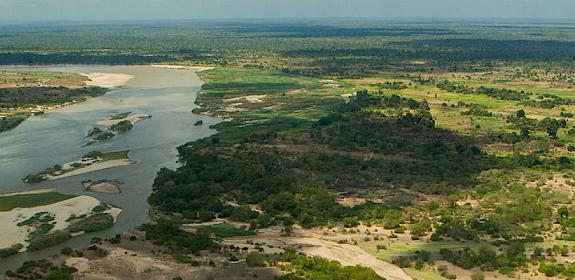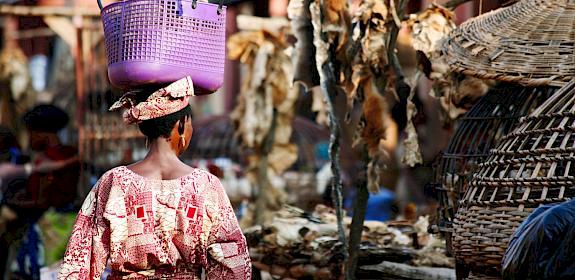Could 42 be the answer to defining sustainability? Time to test new tool for assessing the sustainability of wild species use
TRAFFIC, IIED and partners are piloting a new tool that aims to bring a more rounded approach to assessing sustainability in the use of wild species. The ‘5D’ tool has distilled 42 principles for assessing, under five categories and cross-cutting elements of sustainability.
Feedback WantedWe’d love to hear from anyone who uses 5DSAF so we can improve the beta version and develop a tool that can make a positive contribution to supporting the sustainable use of wild species. Download a background paper for further context for the framework. Download and try the framework ContactFor more information, email: |
Five-Dimensional Sustainability Assessment Framework
TRAFFIC with IIED, IUCN SULi, Endangered Wildlife Trust and EPIC Biodiversity – supported through the UK government’s Darwin Initiative and under the guidance of a multidisciplinary expert advisory group – have developed a Five-Dimensional Sustainability Assessment Framework (5DSAF).
Defining the true meaning of sustainability of wild species use and trade, encompassing a wider range of angles is a complex concept and is technically challenging to assess."
Anastasiya Timoshyna, TRAFFIC’s Director of Strategy, Programme and Impact and co-author of the 5DSAF.
Considering the wider complex elements of describing sustainability, the Framework adds animal welfare and human health to the more conventional categories of ecological, economic and social aspects.
For each of the five dimensions, the 5DSAF defines seven key principles, with the framework matrix underpinned by a further seven cross-cutting principles. These principles are derived from existing international standards, frameworks and guidelines.
The framework can be implemented with a simple spreadsheet-based tool, allowing users to score performance against each of the 42 principles and identify areas where improvements are needed.
TRAFFIC will be part of the piloting crew, trialling this Framework in the context of Tanzania, where work supported by the USAID Wildlife TRAPS project and GIZ has researched the structure and governance of the rapidly developing legal wild meat industry.
“We hope this approach will help to cut through the complexity and will be accessible to policymakers and practitioners, supporting a process of continuous improvement among wild species enterprises, initiatives and value chains," says Anastasiya Timoshyna.

Image by Ranbir Chauhan from Pixabayre
Why is this important?
Last year, the Intergovernmental Science-Policy Platform on Biodiversity and Ecosystem Services (IPBES) published an Assessment Report on the Sustainable Use Of Wild Species. The report highlighted that 50,000 wild species are used globally, with one in five people relying on them for income and food.
This reliance is particularly true of the world’s poorest people - 70% are directly dependent on wild species. However, at the same time, unsustainable use of wild species, including for trade, is one of the key drivers of biodiversity loss.
In some instances, the use of wild species can have negative implications for human health and raise concerns about animal welfare. As wild species use is also a significant part of global trade, that’s why the Kunming-Montreal Global Biodiversity Framework includes targets to ensure the use of wild species is not only sustainable and legal but also “safe,” working in tandem with the CITES Strategic Vision.
About the Darwin Initiative

Funded by the UK Government through the Darwin Initiative.
The Darwin Initiative is a UK government programme with a focus on biodiversity projects.
About Wildlife TRAPS
The Wildlife TRAPS Project, implemented by TRAFFIC and IUCN with funding support from USAID, is helping to forge cross-sectoral partnerships with government and experts in inter-governmental organisations, NGOs, academia, and the private sector to identify risk mitigation strategies to prevent future zoonotic spillover potential associated with trade in wild animals.
As well as social and behavioural change interventions, the Wildlife TRAPS project is supporting policy and regulatory reform efforts, including strengthening supply chain management systems. The identification of critical control points within wildlife trade supply chains will help target illicit and other high-risk wildlife trade practices that may facilitate the transmission of zoonotic diseases.




